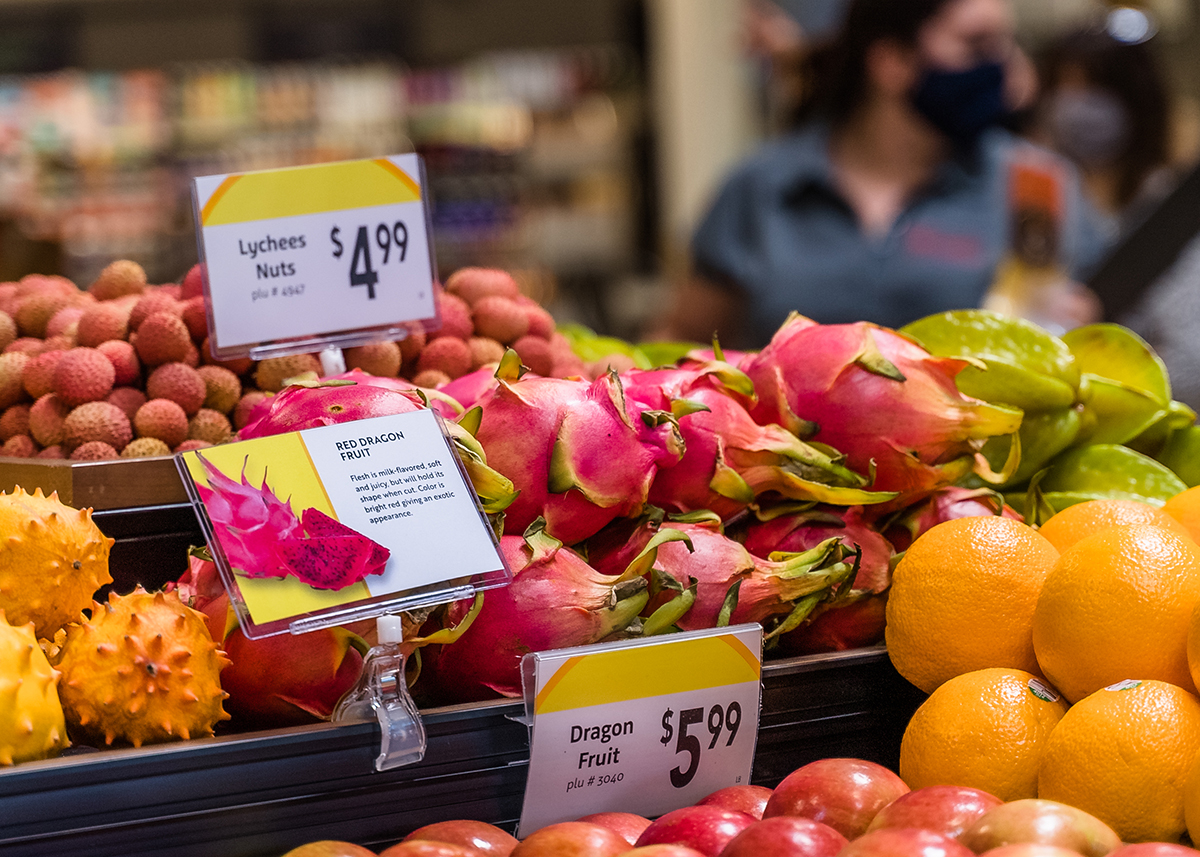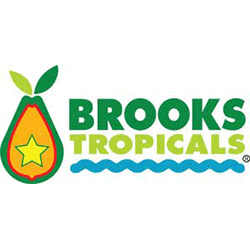Whether it's vibrant dragon fruit displays or ripe mangoes for summer snacking, tropical fruits continue to take center stage, just in time for National Tropical Fruit Day on July 18.
Retailers and growers are celebrating the special day by tapping into consumer cravings for bold flavors, health benefits and a taste of the tropics.
Dole Food Company
Of the current consumer trends around tropical fruits, Bil Goldfield, director of communications for Dole Food Company of Charlotte, N.C., says summer brings increased sales.
“The warm summer weather and increased outdoor activity spurs consumers to turn to lighter, more refreshing and hydrating foods like smoothies, fruit salads and desserts — and tropical fruits work well here since pineapples, mangoes, dragon fruit and other tropicals reach their peak availability from May through August.”
Goldfield says Dole also sees increased popularity in grilling, and not just meat and vegetables but also pineapples and other tropicals, due to the growth in vegan and plant-forward diets. In addition to the customary pineapples, Goldfield says, “we're seeing mangoes and even bananas on backyard barbecues, summer cocktails and hors d'oeuvres platters or recipes.”
Summer holidays also center around tropical fruits.
“We've worked with our retail partners to leverage key tropicals usage occasions like Cinco de Mayo, Memorial Day and the Fourth of July for years,” Goldfield says, “and have recently expanded our promotional efforts to include food holidays like International Pineapple Day, National Mango Day, Dole Whip Day and (now) National Tropical Fruits Day.”
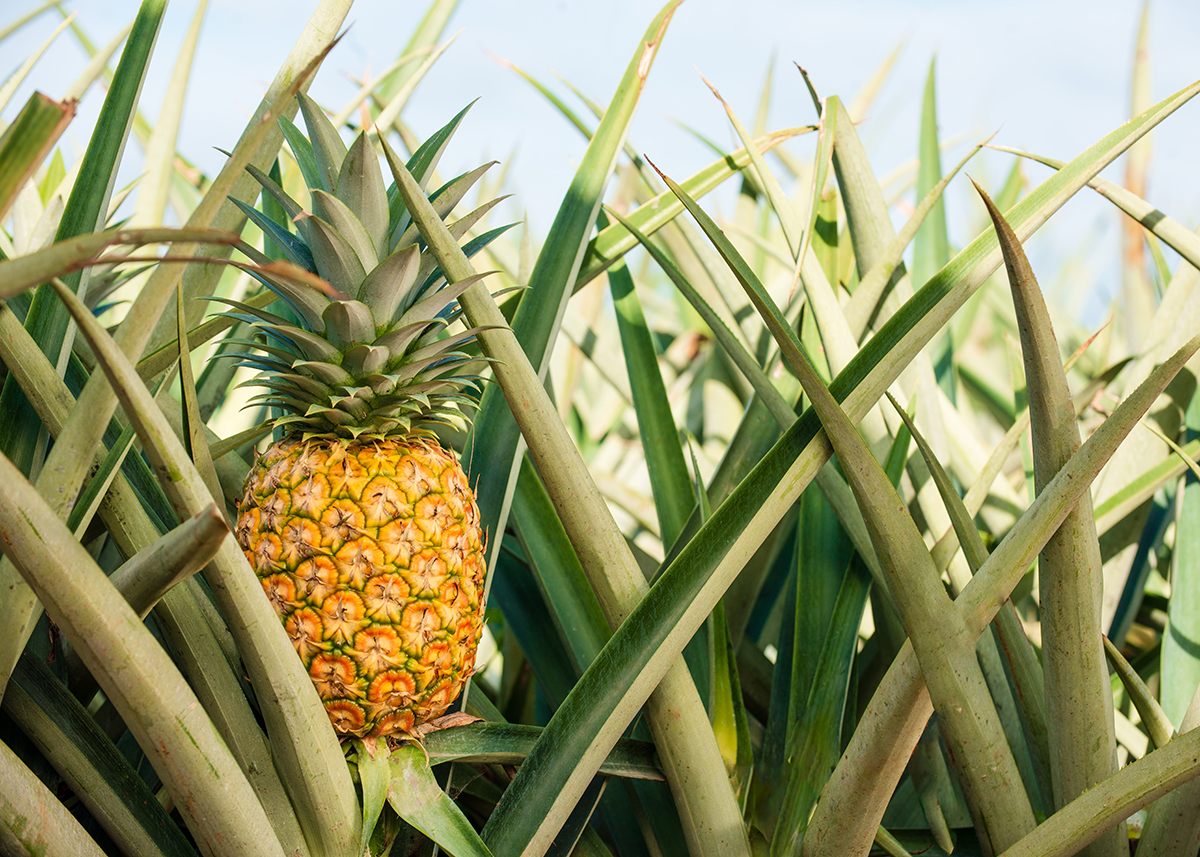
These events offer opportunities to feature tropical fruit in themed promotions, displays and marketing campaigns, Goldfield says.
Retailer promotions and foodservice partnerships help drive tropical fruit sales, and Goldfield says displays are important.
“We've found the most merchandising success when we can work with retailers to create bold, eye-catching displays with tropical-inspired signage, colors and graphical elements that position tropicals as part of a tropical paradise,” he says, “This includes stacking pineapples and mangoes neatly (and high) to create visual appeal; offering themed, in-store cutting and sampling demos, and using storytelling, preparation tips, recipes and other value-adds to directly engage shoppers.”
Goldfield says tropicals also provide surprisingly strong cross-merchandise opportunities with complementary products.
“We tell retailers to add secondary banana displays near cereal, peanut butter and smoothie ingredients,” he says, “For mangoes, adding a display of salsa ingredients (avocados, limes and cilantro) right in the produce department can lead to greater recipe inspiration. And pairing pineapples with grilling meats, tropical juices or rum often encourages party-themed shopping.”
To meet this increased interest in tropical fruits, Goldfield says Dole has launched a line of mangoes, and continues to deliver from more sources.
“In April 2024, we launched a comprehensive line of mangoes, including ataulfo, tommy atkins, kent, keitt and haden varieties. We continued this momentum this year by expanding the program, leveraging our scale and logistics to deliver more mangoes from more sources — currently Mexico, Guatemala, Costa Rica, Nicaragua, Brazil, Ecuador and Peru — to satisfy new consumer demand throughout the year.
”What's most interesting is the fact that each mango variety offers unique flavors and textures, which we use to address different consumer preferences — from lower fiber and sweeter taste demands to high fiber and more complex flavors,” Goldfield says.
Dole's expanded mango program came right after 2023's introduction of its Golden Selection Pineapples, Goldfield says, which are meticulously grown and ripened to offer a deeper golden shell, richer golden flesh and a delicate aroma.
“We developed this special pineapple for those consumers who appreciate an exceptionally sweet tropical fruit experience.” he says.
“Later this year, we'll continue the launch excitement with the debut of another shining star in the Dole Tropicals universe. While it's too early to share details, we see this as being a true game changer for the category,” Goldfield adds.
Save Mart Companies
The Save Mart Companies operates over 200 stores across the West Coast with 194 Save Mart, Lucky and FoodMaxx stores in neighborhoods throughout California and Western Nevada, and 11 Roth's and Chuck's Fresh Markets in Oregon and Washington. Andy Vargas, senior category manager, fruits, for The Save Mart Companies, weighed in.
“The main driver, the horse of the category, is pineapple,” Vargas says. “It's a year-round staple, and we have bearing regions in the Southern Hemisphere that give us year-round supply. Pineapples are primarily promoted during holidays, but everything around the pineapple on display drives incremental sales. This year, dragon fruit has come up big for us. We've partnered with a supplier who can get us containers at great deals, and we run fast attacks — hot promotions not specifically in the ad but with big displays and sampling at stores — which drives sales.”
Summer brings increased purchases of tropical fruits, Vargas says.
“At FoodMaxx, our value format store, customers are really after large jumbo mangoes for better eating quality and value. We promote them during summer months to capture that interest,” Vargas says.
When it comes to shifts in shopper demand for tropical fruits, Vargas says consumer interest continues to grow.
“Pineapple remains a staple, but overall awareness has grown. Fruits that look ‘strange' to some shoppers, like lychee nuts or dragon fruit, are getting more trial. Social media and influencers play a big role, showing items like papayas and saying, ‘Have you tried this? Here's where I got it.' We're promoting these non-traditional items, like Maradol papaya, which does well in FoodMaxx due to our Hispanic consumers and cross-shopping,” Vargas says.
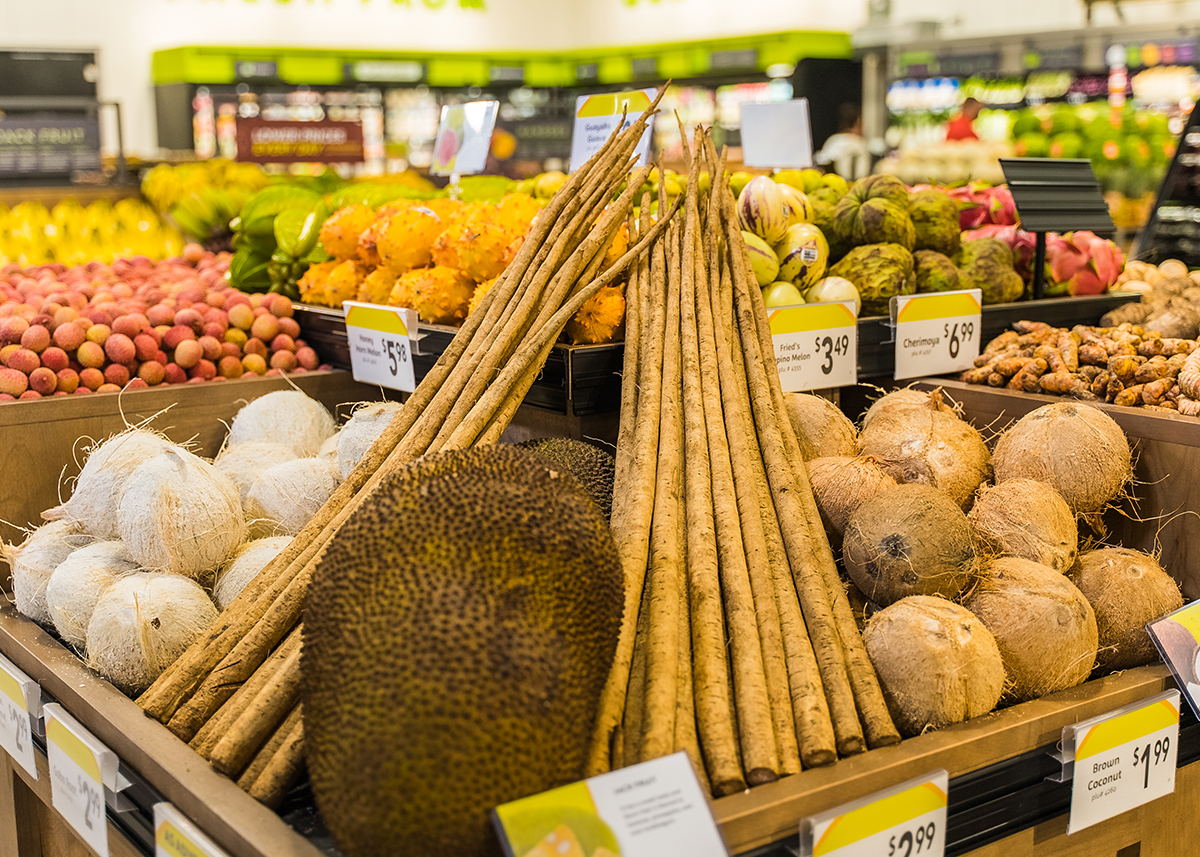
The retailer sees regional prefeences as well.
“It's very regional,” Vargas says. “In the Southeast, demographics drive higher tropical fruit indexing than in California. We're looking at what works there to see if we can cross-shop it here. Right now, California is lagging behind, but we see opportunity.”
While health and wellness benefits are back-of-mind, Vargas says the interest lies in consumers wanting to try new varities.
“It's more about inquisitive shoppers wanting to try new things,” he says. “Nutrition and snacking benefits are add-ons once awareness builds, but right now, we continue to develop the category.”
When it comes to social media, Vargas says influencer content helps drive additional basket purchases.
“It's across all demographics, but social media and influencers help drive traffic into stores for tropical fruits that people might not be familiar with. Gen Z and millennials definitely engage with tropical fruits — dragon fruit is the No. 1 searched tropical fruit for these groups. They're drawn to the natural vitamins, antioxidants, flavor and vitamin C that tropical fruits offer.
“Core shoppers for ancillary tropical items tend to be older,” Vargas says, “but younger consumers are gravitating to them out of curiosity and to change up their snacks.
For successful in-store or digital promotions to drive sales, the retailer says promotions increase sales.
“Our one-day sales have been effective. We've included non-traditional fruits like mangoes and papayas, and we saw a 1,000% increase in Maradol papaya sales in a single day, with a halo effect on repeat purchases,” he says.
“There's a huge opportunity in our market to expand tropical fruit demand, increase consumer awareness, and drive incremental sales while letting shoppers try something new and delicious,” Vargas adds.
J&C Tropicals Celebrates Florida-Grown
J&C Tropicals, a supplier of tropical produce across the U.S., kicked off of its Florida Locally Grown season, alongside major growth through its expanded warehouse and shipping facility in McAllen, Texas, according to a news release.
As demand for tropical fruits continues to rise in the South and Midwest, J&C Tropicals says it is scaling up to meet the moment.
The 2025 Florida season is off to a strong start, thanks to ideal weather conditions, the release says. As a cactus fruit, dragon fruit thrives in arid and dry climates — conditions that have been in J&C's favor this year.
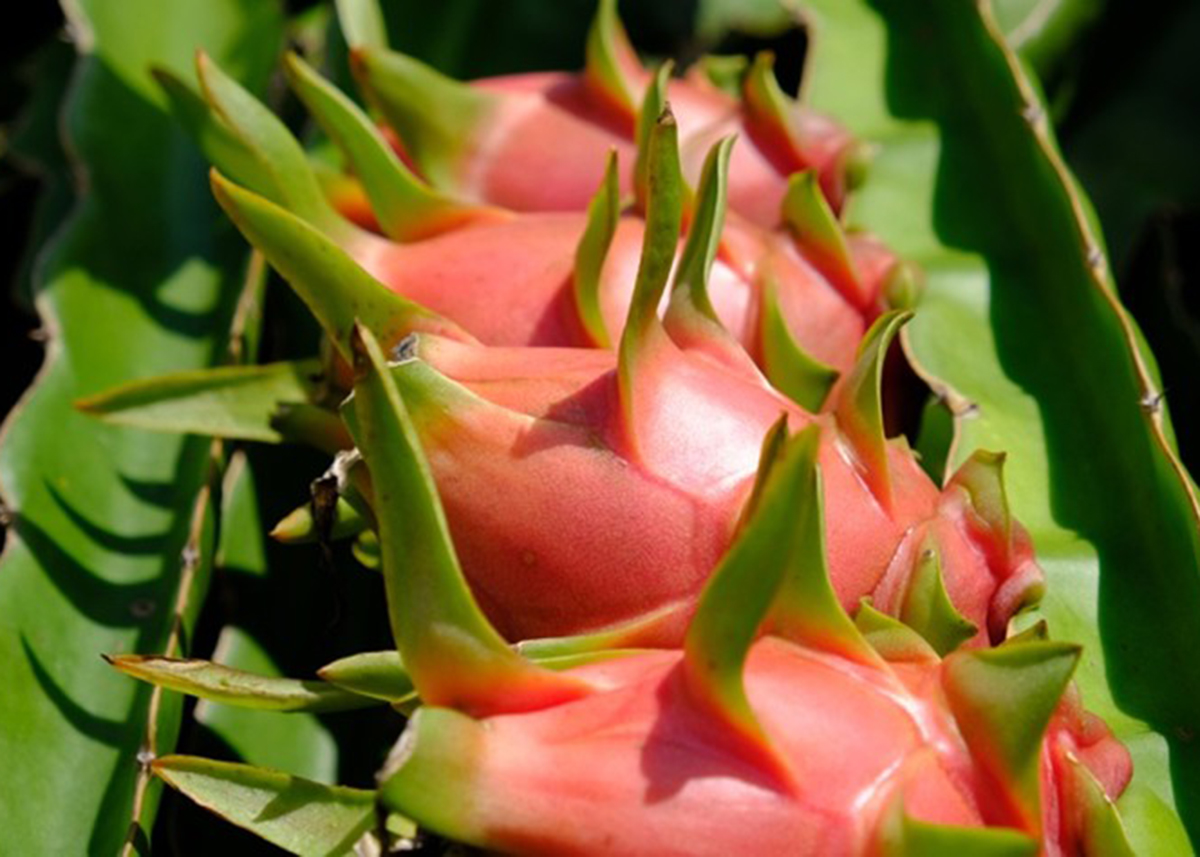
J&C forecasts to pack and distribute over 1 million pounds of Florida-grown dragon fruit from July through September, marking one of the company's strongest harvests to date. This represents significant year-over-year growth and reinforces the company's leadership in the U.S. tropical fruit market, the release says.
“This is a big moment for Florida-grown tropicals,” says Adrian Capote, vice president of sales and procurement for J&C Tropicals “We're seeing local farming and national demand align in a meaningful way.”
In addition to dragon fruit, J&C is also highlighting its locally grown Florida avocados, passion fruit and mamey — each cultivated with care and harvested at peak freshness. Though the Florida lychee season has just wrapped, it was a standout year, with exceptional fruit quality and robust demand from retail partners across the country, the release says.
“These crops represent the heart of what we do,” Capote says. “We're committed to supporting Florida farmers while offering consumers truly fresh, locally grown tropical produce.”
To support this growth, J&C Tropicals recently expanded operations at its McAllen, Texas, warehouse and distribution center, which now services Texas, the Midwest, East and Southeast regions.
Since opening, the McAllen facility has contributed to more than $10 million in revenue growth and over 800,000 units distributed — a strong indicator of demand in the southwestern and central U.S. markets, the release says.
With continued investment and market penetration, J&C projects the McAllen facility to double in capacity within three to five years.
“McAllen has become a strategic hub for national distribution,” says Jessie Capote, CEO of J&C Tropicals. “It's proof that tropicals are no longer niche — they're becoming staples.”

